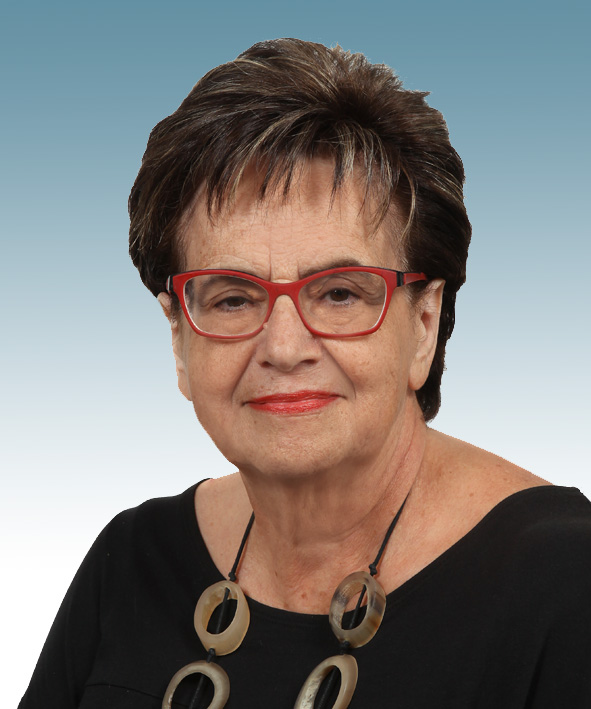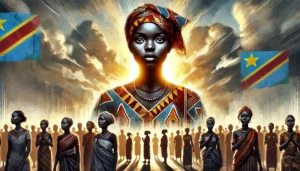- In a context of economic uncertainties, exclusionary politics, rising conflict and instability, shrinking democratic spaces and push back
 on women’s rights CSW held its 63rd session at the UN headquarters in New York. This is the UN’s largest gathering on gender equality and women’s rights. The priority theme of the session was social protection systems, access to public services and sustainable infrastructure for gender equality and the empowerment of women and girls. The review theme was women’s empowerment and the link to sustainable development. This year CSW63 focused on issues at the heart of what matters in the daily lives of women and girls. Ambassador Geraldine Byrne Nason, Chair of the Bureau for the 63rd session of the Commission on the Status of Women, Permanent Representative of Ireland to the UN said that in focusing on core challenges such as affordable childcare, healthcare, education, maternity protection, pensions and safe transport the CSW can have a transformative impact on the realities faced by women and girls around the world.
on women’s rights CSW held its 63rd session at the UN headquarters in New York. This is the UN’s largest gathering on gender equality and women’s rights. The priority theme of the session was social protection systems, access to public services and sustainable infrastructure for gender equality and the empowerment of women and girls. The review theme was women’s empowerment and the link to sustainable development. This year CSW63 focused on issues at the heart of what matters in the daily lives of women and girls. Ambassador Geraldine Byrne Nason, Chair of the Bureau for the 63rd session of the Commission on the Status of Women, Permanent Representative of Ireland to the UN said that in focusing on core challenges such as affordable childcare, healthcare, education, maternity protection, pensions and safe transport the CSW can have a transformative impact on the realities faced by women and girls around the world. - Representing a steady increase in participation from last year, more than 9000 representatives from over 1030 civil society organisations registered to attend this year’s session. As the single largest forum on gender equality and women’s rights for UN Member States, civil society organisations and other international actors, this years CSW saw a record number of attendances. Participants included more than 5,000 representatives from civil society organisations around the world, nearly 2,000 Member State delegates and 86 ministers.
- Along with the 17 official meetings that include Ministerial roundtables, high- level interactive events and expert panels, over 280 side events hosted by Member States and UN Agencies, and 400 parallel events hosted by civil society organisations took place.
- The outcome of the two-week meeting, known as the Agreed Conclusions, adopted by Member States, puts forth concrete measures to strengthen the voice, agency and leadership of women and girls as beneficiaries and users of social protection systems, public services and sustainable infrastructure.
Key recommendations from the Agreed Conclusions include the following:
- Invest in social protection, public services and sustainable infrastructure to support the productivity of women’s work, including in the informal economy;
- Ensure that progress in women’s access to social protection, public services and sustainable infrastructure is not undermined by budget cuts and austerity measures, and levels of protection previously achieved are not reversed;
- Build on multilateral commitments to gender equality, including the Convention on the Rights of Persons with Disabilities and the ILO Social Protection Floors Recommendation, 2012 (No. 202), to strengthen access to social protection, public services and infrastructure for all women and girls;
- Recognize, reduce and redistribute unpaid care and domestic work by ensuring access to social protection for unpaid caregivers of all ages, including coverage for health care and pensions;
- Scale up investment in quality public care services that are affordable and gender-responsive;
- Identify and remove barriers to women’s and girls’ access to public services, such as physical distance, lack of information and decision-making power, stigma and discrimination;
- Guarantee the availability of safe and affordable drinking water and sanitation, including for menstrual hygiene, in homes, schools, refugee camps and other public places;
- Ensure that transport policies and planning are sustainable, accessible, affordable, safe and gender-responsive, taking into account the different needs of women and men, and adapted to be used by persons with disabilities and older persons;
- Promote the full and equal participation and leadership of women and women’s organizations in policy dialogues and decision-making relating to social protection systems, public services and sustainable infrastructure;
- Strongly condemn the impunity and lack of accountability rooted in historical and structural inequality that accompanies pervasive violence against women.
- During the negotiations on the text of the conclusions the US continued as it has done in the last two years to undermine common international goals like those around reproductive rights, healthcare, climate change, family planning. A contentious issue was language on family. The word ‘families’ was pushed to become ‘family’ to emphasise the traditional unit of man and woman as a family component excluding same sex families as a unit.
In its efforts to restrict women’s rights the US aligned with countries such a s Poland, Hungary, Russia, some Gulf countries, Malaysia. They tried to remove from the preamble the word ‘reaffirms’ the Beijing Declaration and Platform for Action and replaced it with ‘take note of’.
The US adopted regressive views on transgender people.
Joining the US on certain issues was also the Holy See, a UN observer state in demanding, but failing, to remove language in the final document around sexual health contending that the language promoted sexual activity among girls as well as abortion.
Debates of whether the word ‘dignity’ should follow the word ‘empower’ which according to some reinforced women’s dignity raised conflict. The US group sought to prevent the word “gender’ being used as a substitute for ‘women’ and girls’ and tried to restrict wording around migration, technology and climate change.
- The US is moving away from traditional democratic allies on social and cultural matters. Instead it is increasingly allying itself with Persian Gulf countries, Iraq, Malaysia and some conservative African countries on a range of issues including questions surrounding protection for LGBT individuals and women’s health issues. So at the 63rd session of CSW this year in New York the US turned back the clock on women’s rights
- The US Mission to the UN has been without an official ambassador this year. This year’s representatives to CSW were led by an ambassador from the US mission to the UN, Cherith Norman Chalet but most of the people on the delegation were not professional diplomats. The US delegation to the CSW included representatives from two conservative NGO’s, C-FAM a Roman Catholic entity and The Heritage Foundation an openly anti- UN group.
- The US delegation and others aligned with it deployed disruption as a tool throughout the conference to push their agenda of undermining women’s rights, most significantly the right to abortion. The US delegation was more aggressive and outspoken this year.
- Moreover, at side events and panels, nongovernmental organizations against abortion and other topics hijacked discussions, filled up meeting rooms to delay proceedings and hired a bus to circulate around the UN area, featuring a photo of a foetus on its sides.
- Protecting women’s rights against this astounding alliance were long time supporters of multi-lateral democracy like Canada, Mexico, the European Union and the Caribbean – Latin American region. Africa also remained a regional supporter of the rights of women. China waited until the document was approved to disengage itself from language around human rights in particular the rights of women human rights defenders.
- The problem of visa denials continued this year. 980 signatures against the denial of visas were collected during CSW63 including IAW’s signature, and a petition was delivered to Cherith Norman Chalet, US It called for the US to honour its obligation to admit foreign nationals, including NGO representatives, to the U.S. in order to participate at UN meetings. This is set forth in the UN Headquarters Agreement signed on 26 June 26 1947 by Secretary of State George Marshall and UN Secretary General Trygve Lie. Section 11 of the Headquarters Agreement prohibits the U.S. from imposing any restrictions on NGOs’ travel to or attendance at the UN. Requirements or conditions needed to be met in order for an NGO applicant’s visa to be approved to attend UN sessions are not set forth in the Agreement.
- The petition is asking that the US state department creates a uniform policy at all Embassies and Consulates in order to streamline and standardise procedures and handling of these visas.
- After the agreed conclusions were accepted different countries made statements. The US joined the positions of others on sovereignty, the family, anti SRHR and health services because they are taken to mean abortion. They spoke encouragingly on the inclusion of indigenous and disabled women and girls. There have been difficulties from the USA, Russia and some Arab and African states over SRHR, migration which was difficult for everyone; the problem of national sovereignty and national laws was also difficult. The phrase ‘all women throughout their life course’ was not accepted anywhere and older women were not mentioned at all. Widows, after a big struggle was included only in the context of families.
- At the closing ceremony Bahrain and Saudi- Arabia made statements saying that they could not join the consensus but when objections were asked for by the chair they said nothing and so the chair considered the document as accepted. Bahrain and Saudi- Arabia then put forward the view that they were not joining the consensus and so the agreed conclusions could not go through because everybody was not in agreement. The advice given then and later was that no objections had been raised and due process has been followed so a major push to upset the whole situation failed.
- Other states also raised objections in post agreed conclusions statements but no one withdrew their support overall. A number made reservations about family, sexual and reproductive health and rights and said the later was attempting to promote abortion.
- The vice chair of the conference representing Africa Ambassador Koki Muli Grignon from Kenya, who also facilitated the negotiations, publicly declared she had been cyber bullied through a blog directed at her and her work and received almost 1,000 bullying text messages on her phone, also criticizing her role at the CSW.
- The attacks on Ambassador Kuki along with other bullying reported by diplomats were condemned by a range of delegates from across continents.
- Despite the rancour in this year’s negotiations the newly agreed conclusions enhance the equal rights of women and girls in such matters as social protection systems, public services and access to sustainable infrastructure.
- In closing remarks United Nations Under-Secretary-General and Executive Director of UN Women, Phumzile Mlambo-Ngcuka observed that:
- This year was very special because of the number of young women and young people who participated. They made their presence felt with contributions of high quality. I want to thank the delegations who made it possible for many of those young people to be here. This investment will have a high rate of return, I promise you.
- With the Agreed Conclusions you have given us the possibility to take the work forward, to make sure that we address the discrimination that may be suffered by women and girls in every part of the world.
- The Agreed Conclusions, even though not everybody gets everything they wanted, give us enough to take home, to work and to take further the work of improving the quality of life for women and girls.


